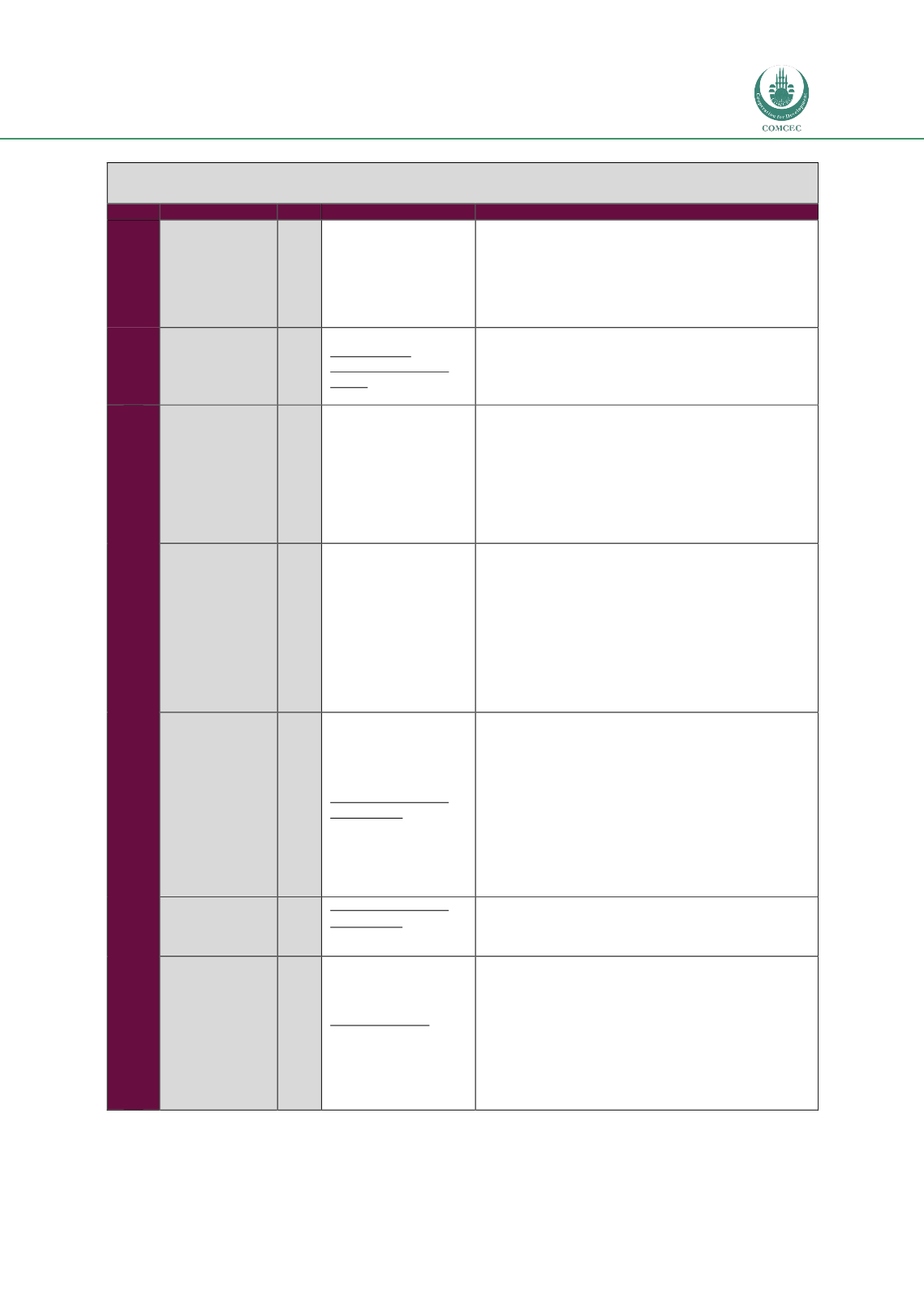

Improving Institutional Capacity:
Strengthening Farmer Organizations in the OIC Member Countries
105
3. Has the Government announced any recent policy initiatives explicitly designed to
encourage farmer organizations?
Group
Country
Y/N
Source
Comments
appropriate technologies and improve farmers’ and
entrepreneurs’ access to them; Develop market
infrastructure that is supported by functional marketing
networks and a market information system; Provide
adequate institutional support; Support human resource
development; and Promote partnerships among the public,
private and NGO sectors.
Azerbaijan
Uluchay Social Economic Innovation CenterNo but it is in the works. Parliament is discussing the
creation of agricultural banks to finance and support FOs.
The government understands the necessity of allowing the
creation of FO and supporting them but no action has yet
been taken.
Asian Countries (cont’d)
Pakistan
N/A
No. Pakistan does not have an agricultural policy in
general. There is a 2013 Agriculture and Food Security
Draft policy. Although at its draft stages, the policy has a
very sharp focus on smallholder farmers and farmer
organisations. It raises prominent challenges facing
smallholder farmers and farmers' organisation. As a
reaction to these challenges, the draft policy outlines very
promising interventions to strengthen the support for
farmers' organizations and smallholder farmers in general.
Tajikistan
The Hebrew University
of Jerusalem: The
Centre for Agricultural
Economic Research and
Department of
Agricultural Economics
and Management
No, not explicitly. The 2013 Tajikistan Law of Cooperatives
does not elaborate the specific functions of either consumer
or service cooperatives, simply stating in very general terms
that cooperatives may engage in all legal activities
involving production and provision of various services
(including consumer services). This non-specific attitude
toward consumer cooperatives in Tajikistan legislation may
be regarded as a carryover from the 1999 Tajikistan Civil
Code, which devotes a long article to consumer cooperatives
but only says that their function is “to satisfy the material
needs of members”..
Turkey
Food and Agriculture OrganizationYes. In the International Year of Cooperatives (2012), a
National Cooperative Strategy and Action Plan-2012-2016
(NCSAP) that was prepared under the leadership of
Ministry of Customs and Trade (MoCT) was unveiled. Its
purpose was to “redefine” the roles of the public and private
sector and present a sustainable policy for cooperatives.
The Strategy was prepared in a participatory manner
where Ministry of Food Agriculture and Livestock (MFAL),
MoCT, the Union of National Turkish Cooperatives (TMKB),
Turkish Cooperatives Association (TKK) and Turkish
Agency of German Cooperatives Confederation (DGRV) were
defined as the partner organizations.
Suriname
Food and Agriculture OrganizationNo. The Multi Annual Development Plan guides agricultural
development in the country. There is no specific policy
initiative explicitly designed to encourage FOs in Suriname.
Uzbekistan
Agrarian ReformsYes. The post-Soviet Agricultural policy era indicated the
transition towards the establishment of cooperatives, agro
firms, corporations, associations of farmer enterprises, and
free private farms as drivers of agricultural production in
Uzbekistan. The new policy direction was centred on farm
restructuring which focused on dismantling state-owned
farms into different types of agricultural enterprises,
including restructured cooperative farms, joint-stock
companies, leasehold farms, agro firms, private livestock
farms and others

















